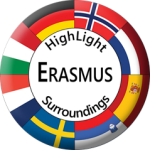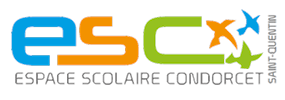Erasmus+ 2016-2019 - Highlight your surroundings









The project aim is helping students with innovative methods to develop key and other competencies and in this way to make the knowledge
useful and students more useful as potencial future employees. This will be achieved by an intensive international cooperation of teachers
of art, of foreign languages, of the mother tongue, of (social) science (biology, chemistry), ICT teachers, their students and experts in
the field of communication and publishing. The cooperation is divided into different areas: research, developing, writing, design, publishing,
dissemination.
5,5 million young people are unemployed in the EU today, which means that every fifth citizen, younger than 25 can't find a job. The
reasons are in the economic crisis and falling numbers of work places but also in inadequate education or unskilled young work force.
The knowledge young people gain is often partial, theoretical, reproductive; young people can't use it in unfamiliar situations,
hence it is unuseful. Even though they gain a multitude of information during their studies, they do badly when they have to solve problems
or show basic skills (PISA studies – there are no European countries among the best). Partially that can be the consequence of inefficient
teaching methods, "compartmentalization of knowledge", according to school subjects, focus on memorizing information rather than the development
of transversal competences, which would allow young people to find themselves in new situations.
An additional problem of today's school is that we don't really know what we are preparing our children for. "Of the 10 most wanted jobs
today, only 2 existed eight years ago. So, what we are teaching in our schools today, won't be needed in the future" (dr. R. Rajović, MENSA
International)
The European framework for key competences for lifelong learning has been used in many EU countries as a reference point for reforming
national education and training systems. It has contributed to the move towards a more competence-based teaching and learning approach.
Progress has been significant on school curricula and in giving transversal key competences a more prominent part therein. This does not
mean that the objectives are achieved in this area. These competences should be developed by all teachers in all subjects, but only few
really do that since the responsibilities are spread among all of them. Besides that, this is a completely new area of expertise. Teachers
haven't been trained for competence teaching and do not exactly know how to deal with it in class. Another problem is also that key competences
cannot really be developed in an environment where teachers see only to the boundaries of their subject area. There have been some movements
made (cross-curricular integration, project days) but all these forms are very short (hour or two) and limited to two or three similar objects,
so they don't represent the actual interdisciplinary approach to acquiring knowledge. A step forward is a modular approach that attempts to
combine the objectives of at least some of the subjects (eg. Science, social sciences ...)
We should look for the solution of these problems in a different school, new approaches to teaching and learning. Young people need
interdisciplinary knowledge, learning on the basis of solving authentic problems and development of key competences. To prepare youngsters
for real life, schools have to work with local communities, learn about their needs and co-operate with them. In this way the youngsters
will learn about their career possibilities and the requirements for jobs.
We will develop and try out an example of interdisciplinary and competence focused approach to teaching. We will develop an appropriate
plan of teacher training, interdisciplinary (topic) teaching material and a practical learning tour which will be tested in practice. The
main focus will be placed on tourism – because all these areas have enormous touristic potential that is not being just.
Target groups
General objectives
- To train teachers for new approaches to teaching
- To give an opportunity to teachers to develop key competences and interdisciplinary approach
- To link knowledge of different subject fields and make it useful (contribute to prevent early school leaving)
- To develop competences with youth and teachers, which will help them find their way in the changing labor market and in life (prevent
unemployment in the future)
- To exchange experiences and examples of good practice between partner schools and beyond
- To reinforce co-operation between school and local community
- To enable students, teachers and wider community to experience a multicultural exchange
Participants
Durée du projet
3 ans - De septembre 2016 à juin 2019
Chaque année il y a 2 réunions transnationales auxquelles trois enseignants par pays participent et un échange d'élèves
Année 1
- TNM 1 du 9 au 12 octobre 2016 en Hollande (photos)
- TNM 2 du 15 au 18 mars 2017 en Norvège (photos)
- Echange avec la Hollande et l'Estonie (photos)
Année 2
- TNM 3 du 20 au 23 septembre 2017 en Slovénie (photos)
- TNM 4 du 14 au 16 mars 2018 en Espagne (photos)
- Echange avec l'Allemagne et la Slovénie (photos)
Année 3
- TNM 5 du 24 au 27 septembre 2018 en Italie (photos)
- TNM 6 du 12 au 15 mai 2019 en France (photos)
- Echange avec la Norvège, la Pologne et la Lettonie (photos)















